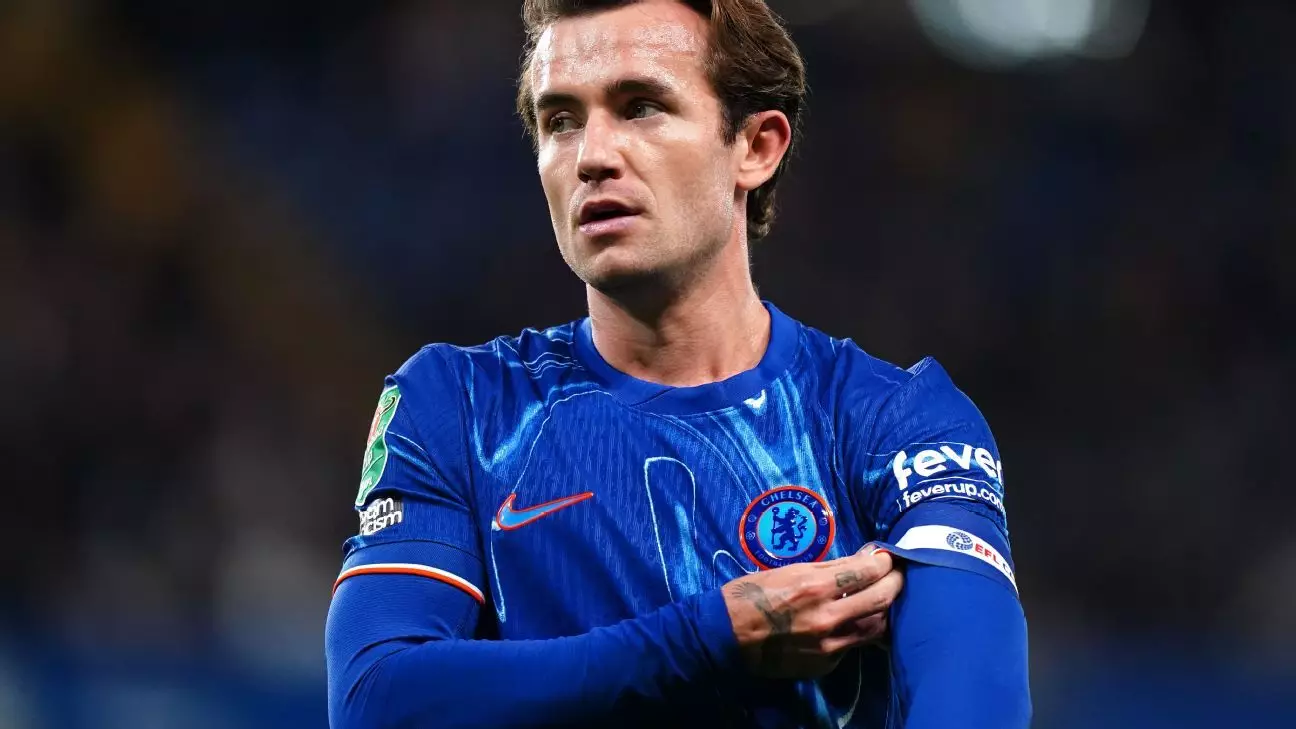In the rapidly changing world of Premier League football, the treatment of individual players can reveal much about a team’s internal dynamics. Ben Chilwell, a 28-year-old full-back, is currently experiencing an unsettling period at Chelsea after years of being a reliable presence on the pitch. Under the management of Enzo Maresca, Chilwell has found himself sidelined, appearing just once this season. In any sport, the disappointment of professional athletes when not included in the lineup is palpable, and it raises questions about how clubs manage their roster and the players’ emotional well-being.
Enzo Maresca’s admission of feeling “shame” regarding Chilwell’s limited playing time paints an interesting picture of a coach caught between strategic decisions and the personal ramifications those decisions hold for players. While it is commendable that Maresca acknowledges Chilwell’s professionalism and dedication—describing him as a “top” player—it raises the question of what defines a player’s fit within a tactical system. Maresca’s preference for utilizing Malo Gusto, Reece James, and Marc Cucurella over Chilwell reflects a broader tactical philosophy that favors versatility in specific roles, suggesting that traditional full-back play may not align with his vision for the team’s structure.
Maresca’s reluctance to play Chilwell can be tied to his views on player versatility, especially his assertion that he is “not a fan of full-backs going up and down.” This perspective invites a deeper discussion around how modern full-backs are utilized in tactical setups. Today’s game often requires full-backs to perform dual roles, balancing defensive duties with the capability to contribute aggressively in attack. Chilwell’s past accomplishments speak to his abilities—playing pivotal roles in title victories and earning national team selections—but Maresca’s vision seemingly aims to utilize players who can fulfill more varied responsibilities within the framework of the team.
The situation is compounded by the potential discontent brewing within the squad. Reports linking promising young talent Renato Veiga to opportunities elsewhere, alongside him feeling stifled in his own position, showcase broader concerns at Chelsea about player satisfaction and retention. Poor player morale can become contagious, affecting training sessions, on-pitch performances, and ultimately the club’s standing in the league. With Chelsea currently struggling—winless in their last five Premier League encounters—the importance of maintaining a cohesive and motivated squad becomes undeniably critical.
As Chelsea prepares to host Bournemouth amid their struggling form, the club faces a pivotal juncture. Treating individual players with the respect they deserve, while also adhering to a coherent team strategy, is a delicate balance that must be navigated carefully. The case of Ben Chilwell serves as a stark reminder of the human aspect behind football—a realm often overshadowed by tactics and statistics. Addressing these nuances both on and off the pitch will be essential for Maresca and Chelsea to turn their fortunes around while preserving the talent and morale of their players.
